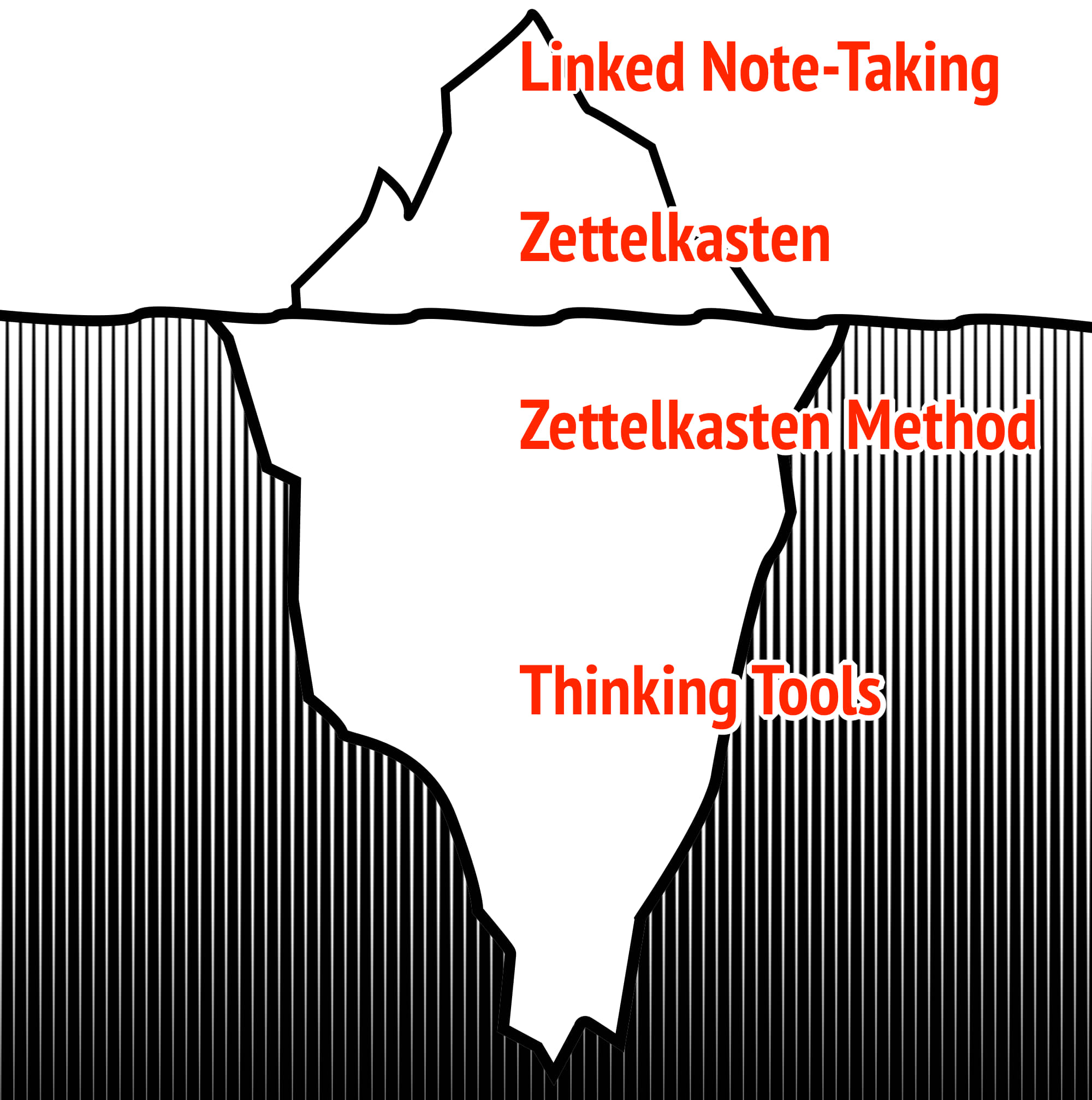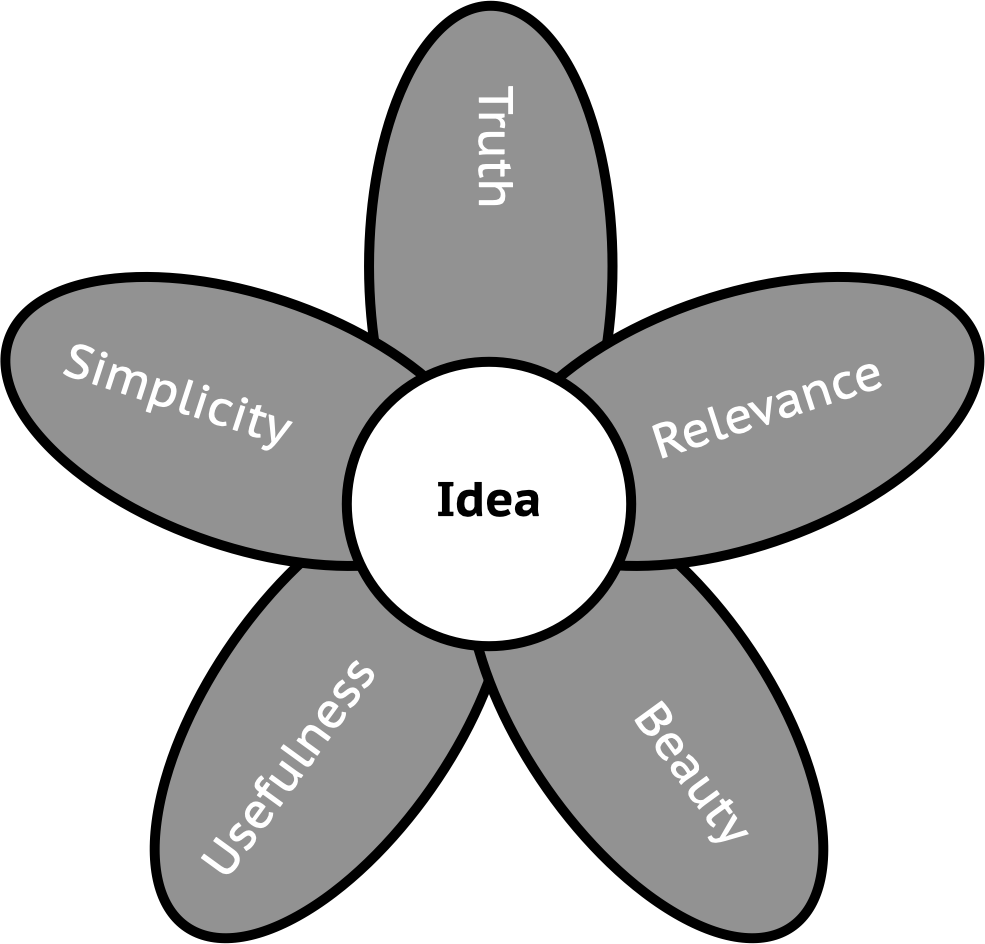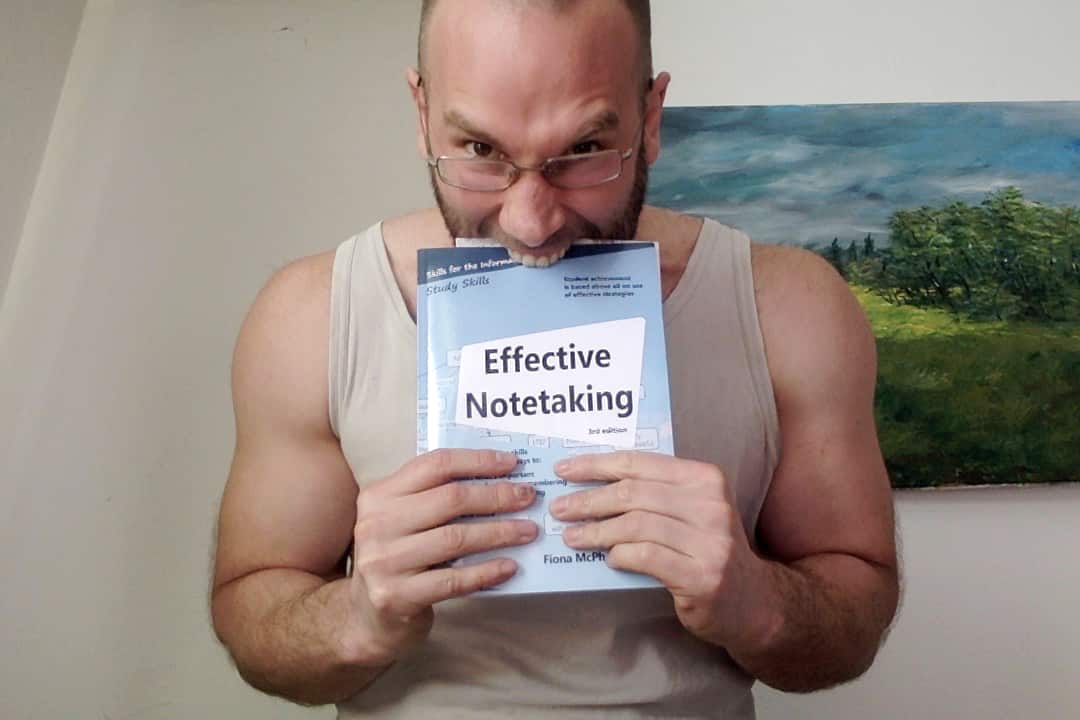Posts tagged “processing”
The Complete Guide to Atomic Note-Taking

Atomic note-taking is one of the buzzwords surrounding the Zettelkasten Method. In short, it is about putting one idea and one idea only on a note. With this guide, I will take you into the exciting deep waters of both the Zettelkasten and thinking skills. Having read this article, you will both know the theory and the practice, the art and the science of atomic note-taking.
Cal’s Books are Salad
Hi Zettlers, What kind of (information) food are Cal Newport’s books? This is the question that I try to answer for myself. His term “ultra-processed content” is spot on for the
process that both food and content processing share: It is about
refining and combining key stimuli. Sugar, Fat, Salt, Protein — each
are specific stimuli that in isolation are not particularly
understandable (try eating pure sugar). However, cloaked in
engineered food and especially in combination, you can overload the
brain and generate the (hyper-)palatability.
The Iceberg Theory of the Zettelkasten Method — Exploring the Depths

The Zettelkasten Method is not only a method of knowledge work. It is also a diagnostic tool. To demonstrate this, I would like to start with a short story from my work as a health and fitness trainer: A client contacted me because she wanted to lose weight. We discussed her situation and I sent her the first steps. One month later, she reported failure. She was unable to implement the program that we had discussed together. We reduced the program because my client said she was unable to implement it as planned due to time constraints and stress. The pattern repeated the next month. So we looked more closely for the causes. A surprising problem came to light:
Why the Single Note Matters

A while ago, I offered free feedback on individual notes to seven people. I did this to showcase the importance of putting effort into individual notes. The ability to write a good single note is one of the main pillars of the Zettelkasten Method. In fact, it is a skill that is universally needed and independent of the Zettelkasten Method.
Feynman's Darlings – Or: How Anyone Can Become Brilliant

You can become brilliant. You just have to be smart and work hard. You asked me if an ordinary person by studying hard would get be able to imagine these things like I imagine. Of course! I was an ordinary person who studied hard. Source
How To Use Creative Techniques Within the Zettelkasten Framework

One of the greatest difficulties in understanding the Zettelkasten Method is to separate its specific characteristics from actual knowledge work. Or, how I like to phrase it: “Link knowledge, not notes.” Working with our Zettelkasten is the physical (or digital) manifestation of our thinking. It provides a framework that allows us to think through writing and to create an increasingly complex thinking machine that can help us think deeper than being on our own. The Zettelkasten Method provides a framework for our thinking, but does not prescribe what and how we think.
Every Step in the Process Must be Knowledge-Based Value Creation

“The Zettelkasten Method is so labor-intensive. I don't have time to also maintain a Zettelkasten.” -- This, or something like it, is a regular concern when people engage with the Zettelkasten Method. And with good reason, because on the forums and Reddit you can see that care and maintenance seems to be a big part of the Zettelkasten Method. That's a problem of the implementation.
How Value is Created in a Zettelkasten (and Any System of Knowledge Work)

The first question we need to ask ourselves is: What is value? I propose a simple answer to this question: Valuable is what is useful to us. Let’s look into knowledge on nutrition as an example: Knowing how to eat healthy is not very useful to a lot of people because this knowledge is not put into practice. Most of the time this knowledge is not what is needed. Eating healthy is rather about building habits. Then again, knowledge on healthy nutrition becomes useful when those healthy habits are built.
Field Report #5: How I Prepare Reading and Processing Effective Notetaking by Fiona McPherson

When you process a book into your Zettelkasten you should prepare both the book and your Zettelkasten. The following is exactly how I prepared Effective Notetaking by Fiona McPherson: I set clear expectations and why I am reading a book. I don’t read for joy, although I enjoy good books almost regardless of their topic. The usefulness of the book comes first. I expect Effective Notetaking to teach me on how to use note-taking to achieve specific goals. So I expect a combination of theoretical and practical knowledge.